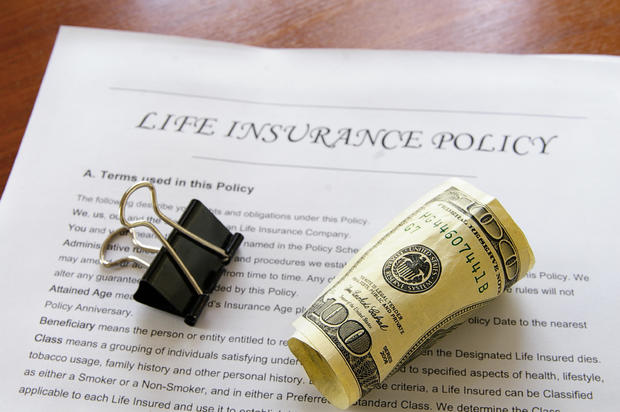Are you overpaying for life insurance?
Life insurance provides a financial safety net for your loved ones and those that depend on you. With proper insurance coverage, you can ensure your beneficiaries can cover your final burial expenses and replace any income they depend on.
While purchasing sufficient life insurance is essential, you shouldn't pay more than necessary. But how do you even know if you're overpaying for life insurance?
The two most popular forms of life insurance are whole and term. But the price for each varies significantly, meaning you could be paying more than you actually need to.
If you want to compare what you're currently paying to what you may able to secure elsewhere then start by getting a free price quote from Haven Life.
Are you overpaying for life insurance?
Here are four signs you may be overpaying for life insurance.
1. You didn't shop around for providers
If you signed up for your life insurance policy without comparing your premiums to other offers for similar coverage, there's a good chance you're paying too much for your policy. Insurance premiums vary among life insurance providers, so it makes sense to get quotes from multiple insurers to find the lowest premiums.
While submitting your information to several life insurance companies may seem like a pain, the process is relatively simple. Many insurers provide online quotes when you provide basic information about yourself and the type of coverage you need. You can also use an online comparison site and receive multiple quotes within minutes.
Start by getting a free price estimate now or use the table below to start shopping for providers.
2. You have a whole life insurance plan
A whole life insurance plan can be a good option if it aligns with your goals and budget, but it may not be ideal for everyone. Whole life insurance comes with a cash value account that grows tax-deferred over time and which you can borrow against. However, that benefit comes at a cost, as whole life insurance can cost five to 15 times more than a term life insurance policy.
Growth rates on your cash value investment are usually lower than what you might find with other investment types. In that case, you may be better off getting basic term life and investing the savings difference elsewhere. Get a free term life insurance price quote now to see what you're eligible for.
3. Your policy has too many riders
Life insurance riders are optional add-ons you can choose to customize your policy. While riders can help you tailor your coverage to your unique circumstances, they also can significantly raise your premium cost.
For example, you may think twice about carrying an accidental death and dismemberment (AD&D) rider, which pays a higher death benefit if you die in an accident or sustain a severe injury like a loss of limb or paralysis. Insurers have different rules regarding what constitutes an accidental death, and most deaths aren't attributable to accidents. So while this rider boosts the costs of your life insurance policy, your odds of receiving the increased death benefit may be poor.
4. You have an annual renewable term life policy
Annual renewable term life policies start with a low premium, but they increase when you renew them each year. So what was once an affordable premium could become very costly over time. If your premium rises every year, it may be time to shop for a new policy or talk to your agent about modifying your current one.
Rather than pay premiums that annually adjust higher, consider buying a level term life policy. You'll enjoy premiums that remain the same over the policy term which should save you money.
How to lower your life insurance costs
The following tips can help you pay less for your life insurance policy.
- Purchase your policy when you are younger. The cost of life insurance tends to rise as you get older and become more vulnerable to health issues. One strategy for saving money is to purchase life insurance when you are younger to lock in a low rate for a term as high as 30 years or for your whole life with permanent coverage.
- Review your policy regularly. Your insurance needs to change over time so your policy should adjust as necessary. For example, you may not need to carry as much insurance when your kids move out and establish their own incomes. Review your coverage annually to ensure you're not paying for coverage you no longer need.
- Get only the coverage you need. Review your policy to ensure you're not over-insured. For example, some financial experts recommend a coverage amount of 20 to 30 times your annual salary. However, if you don't have a family or beneficiaries who rely on your income, a lower death benefit amount may suffice.
- Ask about policy discounts. Chances are your life insurance provider offers several discounts that can lower your monthly premiums. For example, you may receive lower rates for bundling multiple insurance policies with your carrier or for paying your annual premiums upfront.
The bottom line
The best way to ensure you're not overpaying for life insurance is to shop and compare life insurance quotes from multiple insurers. Before you begin the process, write down the parameters you desire for your policy, especially the type of policy and the coverage amount. That way, you can compare the same policy with several insurers to find the best pricing for the coverage you need.
Start by getting a free price quote so you know exactly what to expect.




